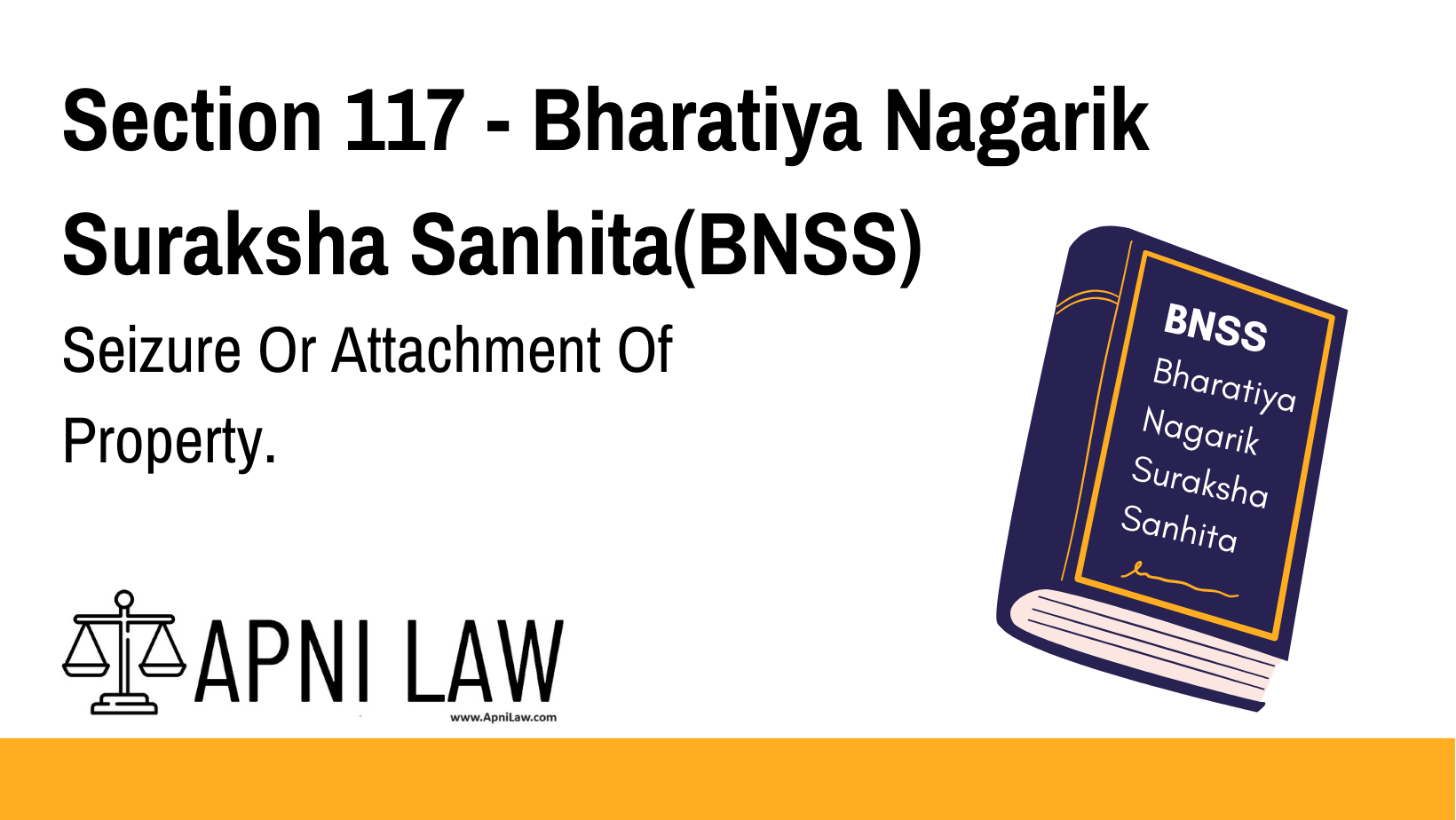Code:
(1) Where any officer conducting an inquiry or investigation under section 116
has a reason to believe that any property in relation to which such inquiry or investigation
is being conducted is likely to be concealed, transferred or dealt with in any manner which
will result in disposal of such property, he may make an order for seizing such property and
where it is not practicable to seize such property, he may make an order of attachment
directing that such property shall not be transferred or otherwise dealt with, except with the
prior permission of the officer making such order, and a copy of such order shall be served
on the person concerned.
(2) Any order made under sub-section (1) shall have no effect unless the said order is
confirmed by an order of the said Court, within a period of thirty days of its being made
Explanation:
This section empowers an investigating officer to seize or attach property that is suspected to be connected to a crime and is at risk of being concealed, transferred, or disposed of in a way that would hinder the investigation.
- Seizure: If the property is accessible, the officer can directly seize it.
- Attachment: If seizure is not feasible, the officer can attach the property. This means the owner cannot transfer or deal with the property without the officer’s permission.
Both seizure and attachment orders require confirmation by a court within 30 days. If not confirmed, the order becomes ineffective.
Illustration:
Imagine a police officer investigating a case of money laundering. The officer believes a suspect has hidden funds in a bank account. To prevent the suspect from withdrawing the money, the officer can order the bank to freeze the account (attachment). This order needs to be confirmed by a court within 30 days.
Common Questions and Answers:
- Q: What grounds justify an order of seizure or attachment?A: The officer must have reasonable belief that the property is connected to the crime and is at risk of being disposed of or concealed.
- Q: Can the owner challenge the seizure or attachment order?A: Yes, the owner can challenge the order in court. They need to provide evidence to show the order is unjustified or that the property is not connected to the crime.
- Q: What happens if the court confirms the order?A: The seizure or attachment order will be valid. The property will remain in the officer’s custody or be restricted from being dealt with. The owner can still apply for the release of the property by proving it is not connected to the crime.











